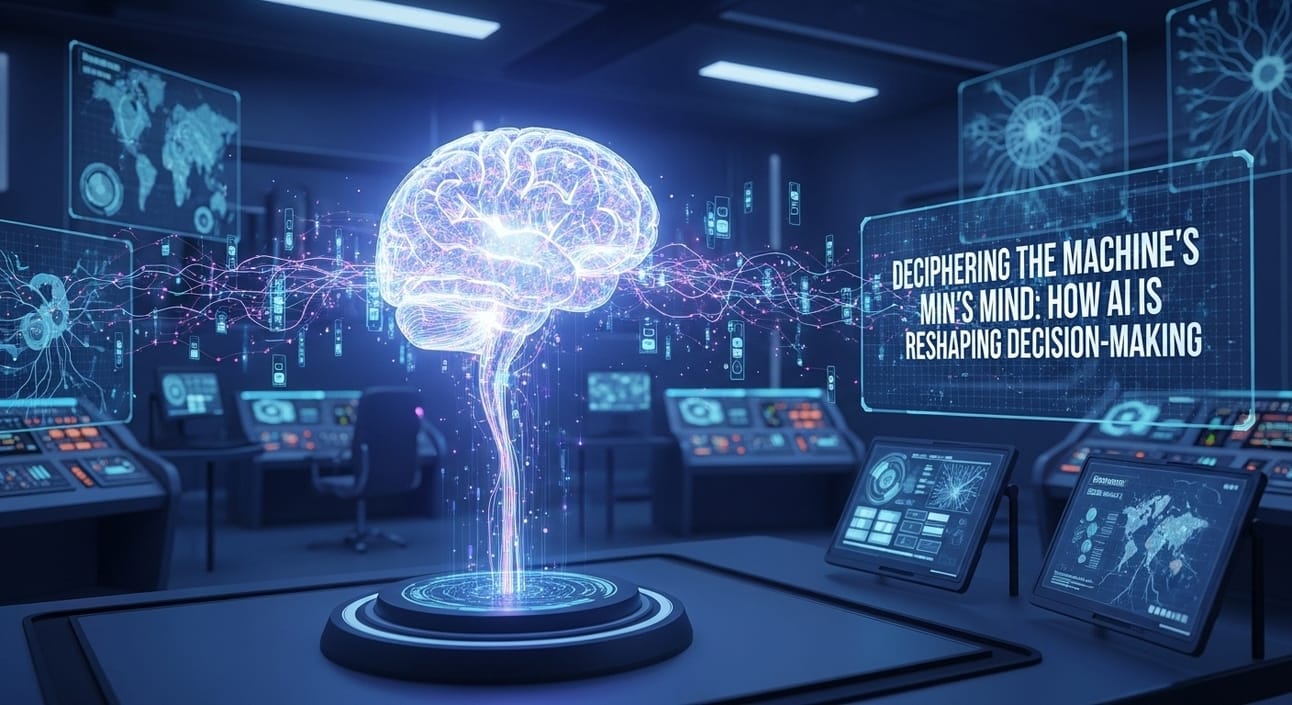- Digital Brain
- Posts
- Deciphering the Machine's Mind: How AI Is Reshaping Decision-Making
Deciphering the Machine's Mind: How AI Is Reshaping Decision-Making

Hello, Digital Brain reader!
In our previous editions, we've explored the incredible advancements in AI, from its multimodal capabilities to the cutting-edge frontiers of embodied AI and generative models. As these "digital brains" become more sophisticated, their influence extends far beyond mere automation, deeply embedding itself into the very fabric of how decisions are made – from the mundane daily choices to critical strategic imperatives. Today, we'll delve into how AI is reshaping decision-making, understanding both its immense power and the critical considerations it brings.
The AI Advantage: Speed, Scale, and Precision
Traditionally, decision-making has been a human-centric process, often relying on intuition, experience, and limited data analysis. AI fundamentally transforms this by offering:
Unprecedented Data Analysis: AI can process and analyze colossal datasets in fractions of a second, identifying patterns, correlations, and anomalies that would be impossible for humans to detect. This leads to data-driven insights that inform more precise and effective decisions.
Predictive Power: Machine learning algorithms excel at forecasting future outcomes based on historical data. In finance, AI predicts market trends; in healthcare, it forecasts disease outbreaks; in retail, it anticipates consumer demand. This predictive capability allows for proactive, rather than reactive, decision-making.
Reduced Cognitive Bias: While AI can inherit biases from its training data (a critical challenge we'll discuss), it can also help mitigate human cognitive biases like confirmation bias or anchoring bias, leading to more objective assessments in certain contexts.
Automation of Routine Decisions: For repetitive, rule-based decisions (e.g., loan approvals, fraud detection, inventory management), AI can automate the process entirely, freeing up human resources for more complex, nuanced tasks.
Real-World Impact: Decisions Across Industries
Healthcare: AI assists doctors in diagnosing diseases by analyzing medical images with higher accuracy, recommending personalized treatment plans, and optimizing hospital resource allocation.
Finance: Algorithmic trading, credit scoring, and fraud detection systems leverage AI to make rapid, data-informed decisions that manage risk and identify opportunities.
Marketing & Sales: AI analyzes customer behavior to personalize recommendations, optimize pricing strategies, and target advertising campaigns with unprecedented precision, directly influencing purchasing decisions.
Logistics & Supply Chain: AI optimizes routes, manages inventory, and predicts potential disruptions, ensuring efficient movement of goods and services.
The Double-Edged Sword: Challenges and Ethical Considerations
While the benefits are clear, the increasing reliance on AI for decision-making introduces significant challenges:
Algorithmic Bias: If the data used to train AI models is biased (e.g., reflecting historical societal inequalities), the AI will learn and perpetuate those biases, leading to unfair or discriminatory decisions. This is a major concern in areas like hiring, law enforcement, and lending.
Lack of Explainability (The "Black Box" Problem): Many advanced AI models, particularly deep neural networks, operate as "black boxes," making it difficult to understand why they arrived at a particular decision. This lack of transparency can be problematic in critical applications where accountability and trust are paramount.
Over-Reliance and Loss of Human Intuition: An excessive dependence on AI can lead to a degradation of human critical thinking and intuition. There's a risk of blindly following AI recommendations without sufficient human oversight or understanding of the underlying logic.
Ethical Dilemmas: In scenarios involving life-or-death decisions (e.g., autonomous vehicles, military applications), programming AI with ethical frameworks is incredibly complex and raises profound philosophical questions.
The Future: Human-AI Collaboration in Decision-Making
The most effective approach to AI-driven decision-making is not full automation, but rather a synergistic collaboration between human intelligence and artificial intelligence. AI should serve as a powerful assistant, providing insights, analyzing data, and automating routine tasks, while humans retain the ultimate responsibility for complex, ethical, and strategic decisions that require empathy, nuanced understanding, and moral judgment.
Your "Digital Brain" is becoming an indispensable tool, but it's the human mind that must guide its application responsibly. Understanding how AI influences decisions is crucial for navigating this new landscape effectively and ethically.
Stay informed, stay critical, and see you in the next edition!
Sincerely,
The Digital Brain Team